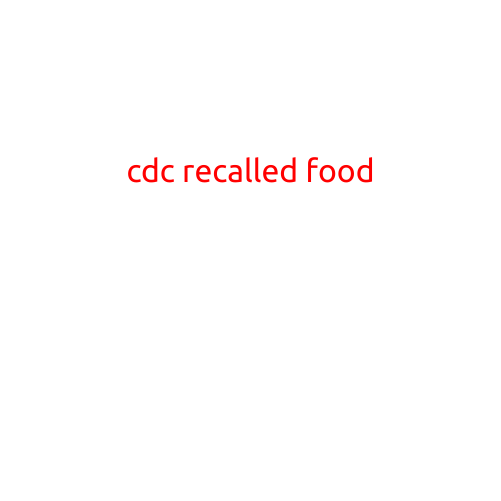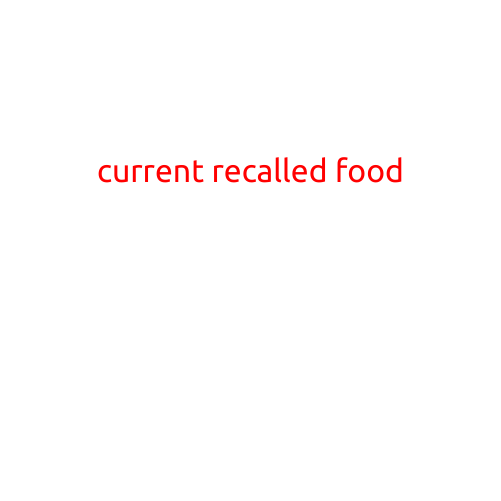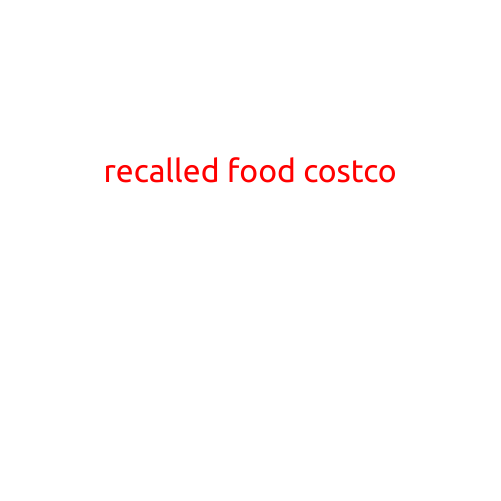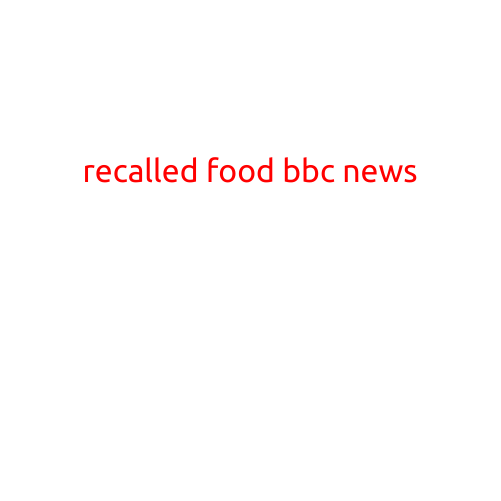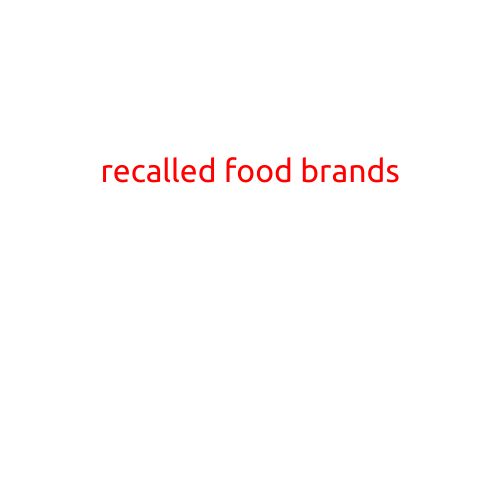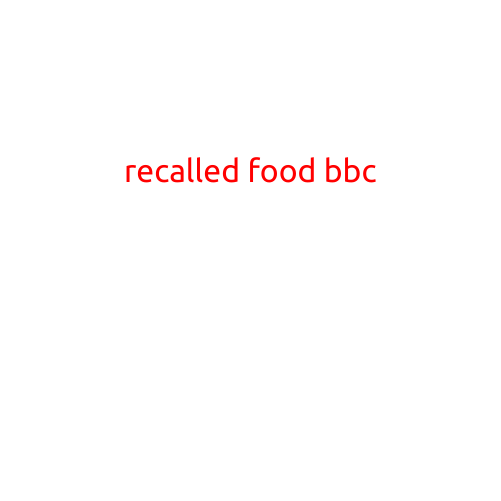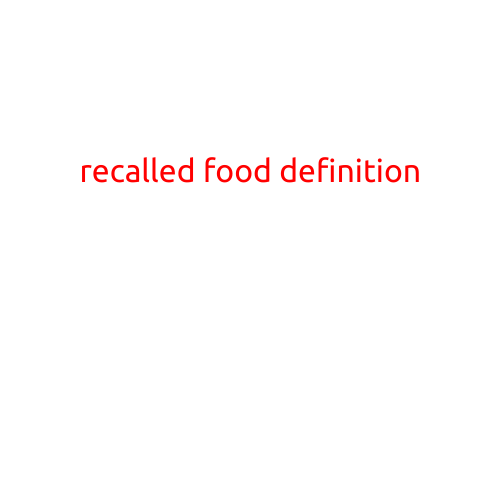
Recalled Food Definition
When you hear the words “recalled food,” it’s likely to spark a sense of caution and concerns about the food you eat. But what does it really mean when a food product is recalled? In this article, we’ll define recalled food, explain why it happens, and provide some vital information to help you stay safe.
Definition of Recalled Food
Recalled food is a food product that has been removed from the market or distribution due to concerns about its safety, quality, or labeling. This means that the product has been identified as potentially harmful or defective, and consumers are advised to return or dispose of it to prevent any potential harm.
Why Are Foods Recalled?
Food products can be recalled for various reasons, including:
- Food Safety Issues: Contaminated products that may pose a risk to consumers’ health. This can include products with undeclared allergens, excessive levels of bacteria, or unapproved additives.
- Labeling Errors: Products with incorrect or misleading labeling, including claims that are not supported by scientific evidence.
- Manufacturing Defects: Defects in the production process that can affect the product’s quality, safety, or effectiveness.
- Recalls due to Third-Party Components: Products that contain ingredients or components supplied by a third-party that have been recalled due to safety concerns.
Types of Food Recalls
There are several types of food recalls, including:
- Class I Recall: A serious recall that involves a high risk of injury or death.
- Class II Recall: A moderate-risk recall that may cause temporary or reversible health effects.
- Class III Recall: A low-risk recall that poses a low or no risk of injury.
What to Do if a Food Product is Recalled
If a food product you have purchased is recalled, here are some steps you should take:
- Check the Recall Notice: Check the recall notice to see if your product is affected.
- Return or Dispose of the Product: If your product is recalled, return it to the store where you purchased it or dispose of it properly.
- Check the Labeled Use-By Date: If the recall is related to a use-by date, check the date on your product to see if it is past the expiration date.
- Stay Informed: Sign up for recall notifications from your state’s health department or FDA to stay informed about potential recalls.
Conclusion
Recalled food is a serious issue that can have significant consequences for consumers. Understanding what recalled food means, why it happens, and what to do if a product is recalled is essential for staying safe and healthy. By staying informed and taking the necessary steps, you can help protect yourself and your loved ones from potentially harmful food products.
Remember, food recall notices are often publicized through various channels, including local news outlets, social media, and official government websites. Stay vigilant, and stay safe!
